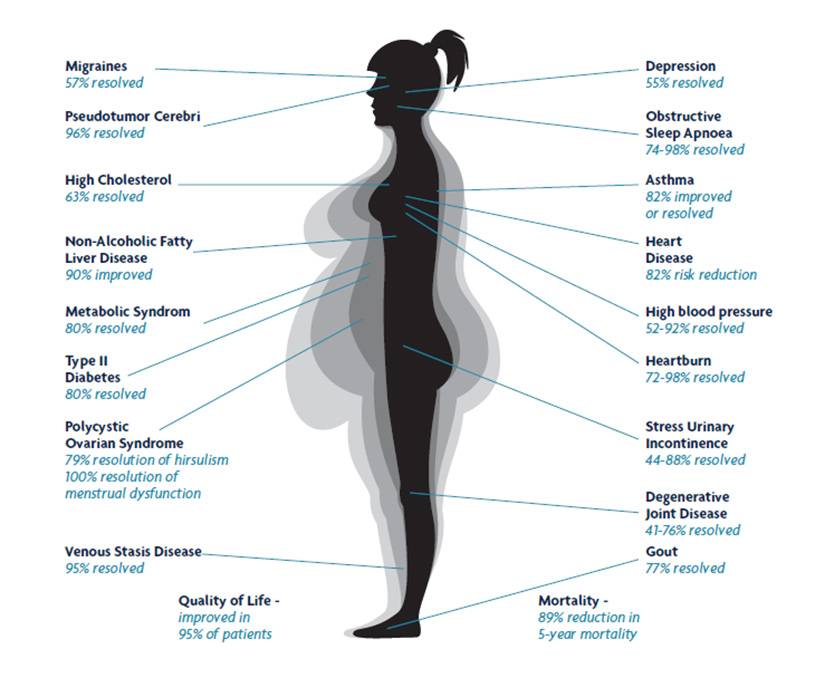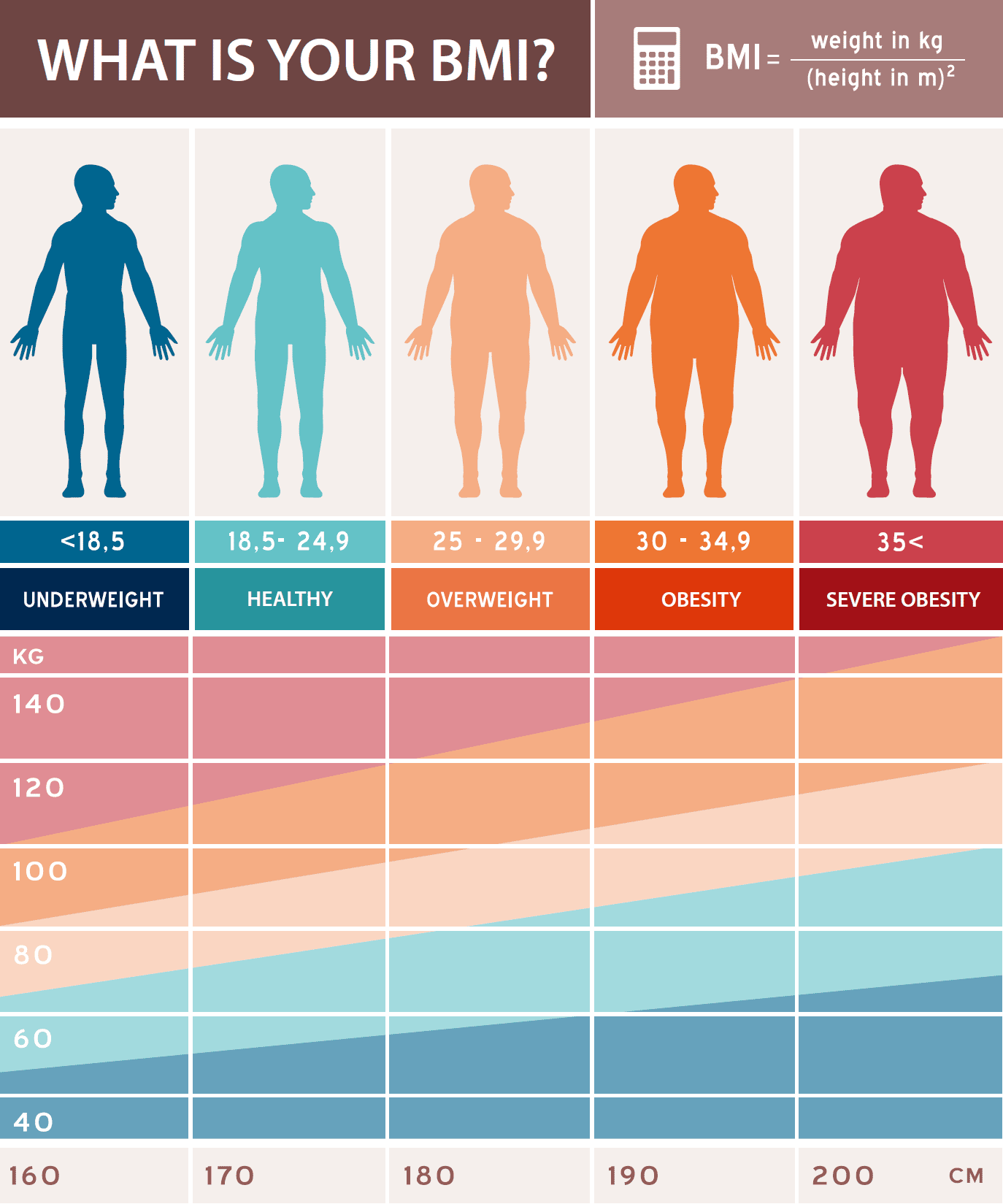
Obesity is no longer considered just a cosmetic issue, brought on by a lack of self-discipline. The World Health Organisation now recognises that obesity is a chronic progressive disease associated with a number of health issues. In America, the National Institutes of Health (NIH) has reported that people with obesity are resistant to sustaining weight loss through the traditionally advised methods of reducing calorie intake and increasing exercise. Indeed, the NIH has recognised that bariatric surgery is the only effective long-term treatment for severe obesity.
Obesity affects every system in the body. Research has shown that having a higher Body Mass Index (BMI) is associated with an increased rate of death from all causes. Obesity has become one of the leading causes of preventable death in Australia, second only to smoking tobacco.
At any age, having obesity shortens your lifespan. Younger people aged 25 to 35 with severe obesity are 12 times more likely to die early than those without obesity. Adults who have obesity at 40 years old die an average of seven years sooner than adults whose weight is within a healthy range. The impact of years of life lost is greater for men than for women. It has been estimated that the steady rise in life expectancy over the last 200 years may come to an end due to the rise of obesity.
Out of ten people with obesity, eight will develop one of the following obesity related health problems, and six will develop at least three:
- Type 2 Diabetes
- Heart Disease
- Stroke
- Cholesterol problems
- High blood pressure
- Chronic kidney disease
- Lung disease
- Obstructive Sleep Apnoea
- Polycystic Ovarian Syndrome (PCOS)
- Infertility
- Osteoarthritis
- Fatty liver disease
- Heartburn and reflux
- Cancer – breast, bowel, liver, kidney, prostate or endometrial
- Depression
- Blood clots
- Gall stones
- Abdominal hernias
The important distinction for people to make is that an individual is not obese, they have obesity. Obesity is not part of a person’s identity; it is a disease to overcome.
Fortunately, obesity can be treated. Weight loss can reverse most of the damage done by obesity.
The first step is to check whether your weight is healthy for your height. A practical way to do this is to calculate your BMI

For people with severe obesity, lifestyle changes of diet and exercise typically lead to long term weight loss of between 5 to 10% of their excess weight. Sustained weight loss of more than 5% of initial body weight is regarded as a good medical result. For example, a 150kg average height female with sustained weight loss of 8kg would be considered to have achieved a good medical result. However, this amount of weight loss is not likely to improve their health problems.
Bariatric surgery produces and sustains greater weight loss. Gastric sleeve and gastric bypass surgery typically produce sustained weight loss of between 60-80% of excess weight. For this 150kg average height female, that would be weight loss of between 51 to 68 kg. Some people can achieve and sustain 100% excess weight loss. This sustained weight loss after surgery often results in the medical problems that were associated with obesity improving or resolving. That is, people become healthier with fewer medical problems.
As with any surgical procedure, there are risks associated with bariatric surgery. The risk of a surgical complication is low, approximately 1 to 2%. To put this into perspective, it is approximately the same overall risk as having your gallbladder removed, and is less than having a joint replaced. The risks of surgery need to be weighed up against the risk of leaving severe obesity untreated. Talk to your doctor about whether bariatric surgery would be a suitable option for you.
Bariatric surgery is a tool that is most effective when combined with a comprehensive treatment plan delivered by a multi-disciplinary support team. At the Surgical Weight Loss Centre, Dr Jordaan heads an established team of dietitians, psychologists, nurses, anaesthetists and medical specialists who support their patients through an intensive two year programme, followed by yearly reviews for life, to ensure excellent long-term results.